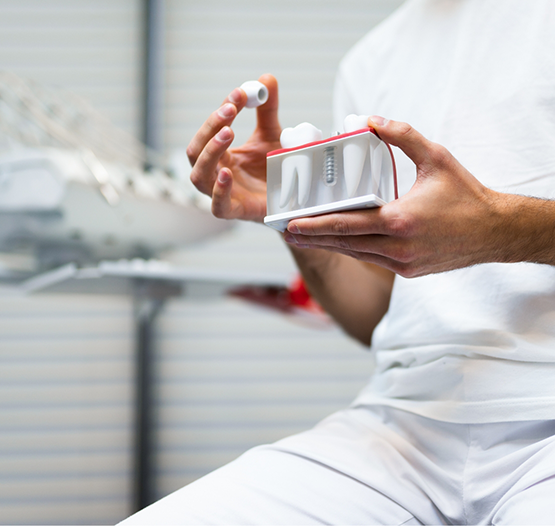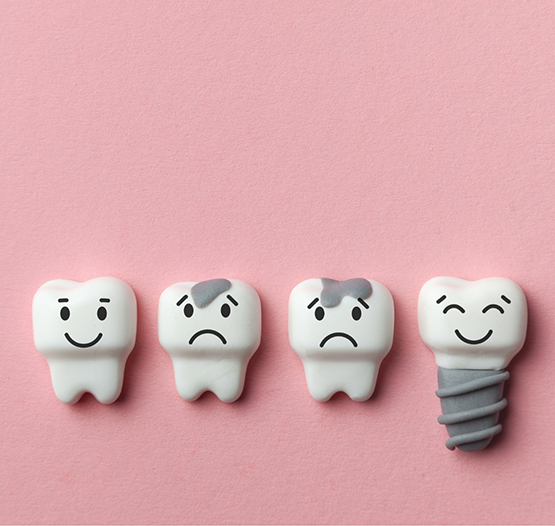Dental Implant Failure & Salvage Spring
Personalized Salvage Treatment to Preserve Your Dental Implant
As the gold standard of tooth replacement treatment, dental implants come with many benefits that go far beyond replacing missing pearly whites. However, even though they typically offer a success rate of over 95%, they still have a small chance of failure. The good news is that our team can offer dental implant salvage treatment at Spring Dentist, allowing you to preserve your dental implant(s) for much longer. Keep reading or call us to learn how a titanium post can potentially fail and how our team can help resolve the situation.
Why Do Dental Implants Fail?

Peri-implantitis is perhaps one of the biggest reasons that dental implants fail. This type of gum infection targets the connective tissues surrounding the titanium post, weakening and damaging the jawbone to the point where it can no longer hold the restoration in place. This can typically occur due to poor oral hygiene.
Other reasons for dental implant failure include failed osseointegration, accidental physical injury, and medical conditions that can affect your body’s ability to support your dental implant, including diabetes, osteoporosis, and oral cancer.
Symptoms of a Failed Dental Implant

Remember that a titanium post can potentially fail at any time. This means you can begin to have complications several years or even a few weeks after your implant placement surgery. Here are some of the symptoms that may indicate that your new teeth might be failing:
- Strange or unusual soreness around the dental implant
- Loose dental implant
- Trouble or difficulty biting down or chewing
- Swelling, bleeding, and pus in the gums surrounding the implant
How Dental Implant Salvage Works

If you suspect something is wrong with your dental implant, you’ll want to visit your dentist right away. Dr. Kuykendall will thoroughly evaluate your situation to detect and address the underlying problem so that your titanium post can be salvaged. In some cases, this might require you to undergo a deep cleaning or receive antibiotics or some other form of infection control treatment. Remember, the sooner you’re able to get treated, the higher the chance of saving your dental implant(s).

